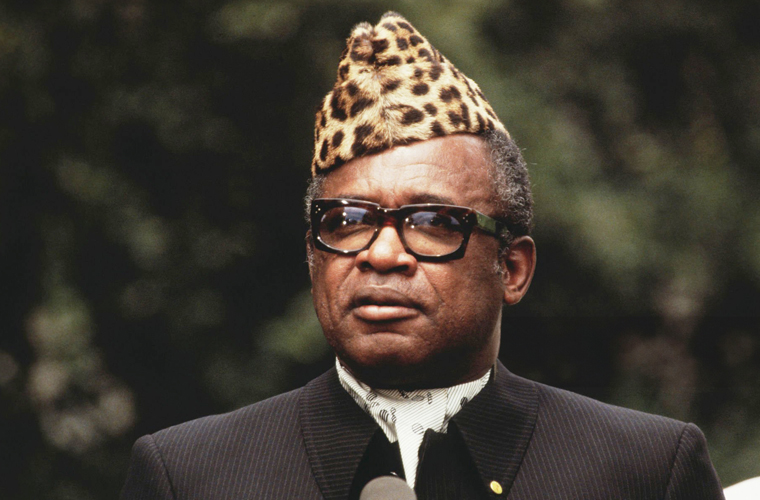Mobutu Sese Seko was a prominent figure in the history of the Democratic Republic of the Congo, formerly known as Zaire. Born Joseph-Désiré Mobutu on October 14, 1930, in Lisala, Belgian Congo, he would later adopt the name Mobutu Sese Seko Kuku Ngbendu Wa Za Banga after coming to power. Mobutu’s rule as President of Zaire lasted for over three decades, from 1965 to 1997, and his legacy continues to be a subject of debate and analysis. Mobutu’s rise to power began amid political turmoil in the newly independent Congo. After a series of coups and power struggles, Mobutu seized control of the government in 1965 and established himself as the country’s leader. Under his rule, he implemented a policy of “Zairianization,” which aimed to promote Africanization and reduce the influence of foreign powers in the country. This included the renaming of the country from Congo to Zaire and the promotion of African cultural identity.
However, Mobutu’s regime was marked by widespread corruption, human rights abuses, and economic mismanagement. Despite the country’s vast natural resources, including diamonds, copper, and cobalt, the economy stagnated under Mobutu’s rule, with much of the wealth being siphoned off by the ruling elite. Meanwhile, political dissent was brutally suppressed, and opposition figures were often subjected to imprisonment or exile. Mobutu’s wealth also became a subject of international scrutiny, with allegations of embezzlement and corruption on a massive scale. He was known for his extravagant lifestyle, including palatial residences, private jets, and a large collection of luxury cars. His opulent lifestyle stood in stark contrast to the poverty experienced by much of the Zairian population.
Internationally, Mobutu’s regime was both supported and criticized by various countries and organizations. During the Cold War, he received backing from Western powers due to his anti-communist stance, while also maintaining relations with countries such as China and North Korea. However, his human rights record and authoritarian rule drew condemnation from human rights groups and foreign governments. In 1997, Mobutu’s rule came to an end as rebel forces led by Laurent-Désiré Kabila overthrew his government. Mobutu fled into exile, and he would spend his final months battling cancer before passing away in Morocco on September 7, 1997.
The legacy of Mobutu Sese Seko continues to be a topic of debate and analysis. While some view him as a symbol of African nationalism and anti-colonialism, others criticize his authoritarian rule and the damage it inflicted on the country. The impact of his regime on the political, social, and economic landscape of the Democratic Republic of the Congo is still felt today, as the country continues to grapple with issues of governance, corruption, and development.
In conclusion, Mobutu Sese Seko’s tenure as President of Zaire left a lasting imprint on the history of the Democratic Republic of the Congo. His rule was characterized by authoritarianism, corruption, and economic mismanagement, and his legacy remains a subject of scrutiny and debate. As the country moves forward, it must reckon with the impact of Mobutu’s rule while striving to address the challenges that continue to affect its development and stability.

